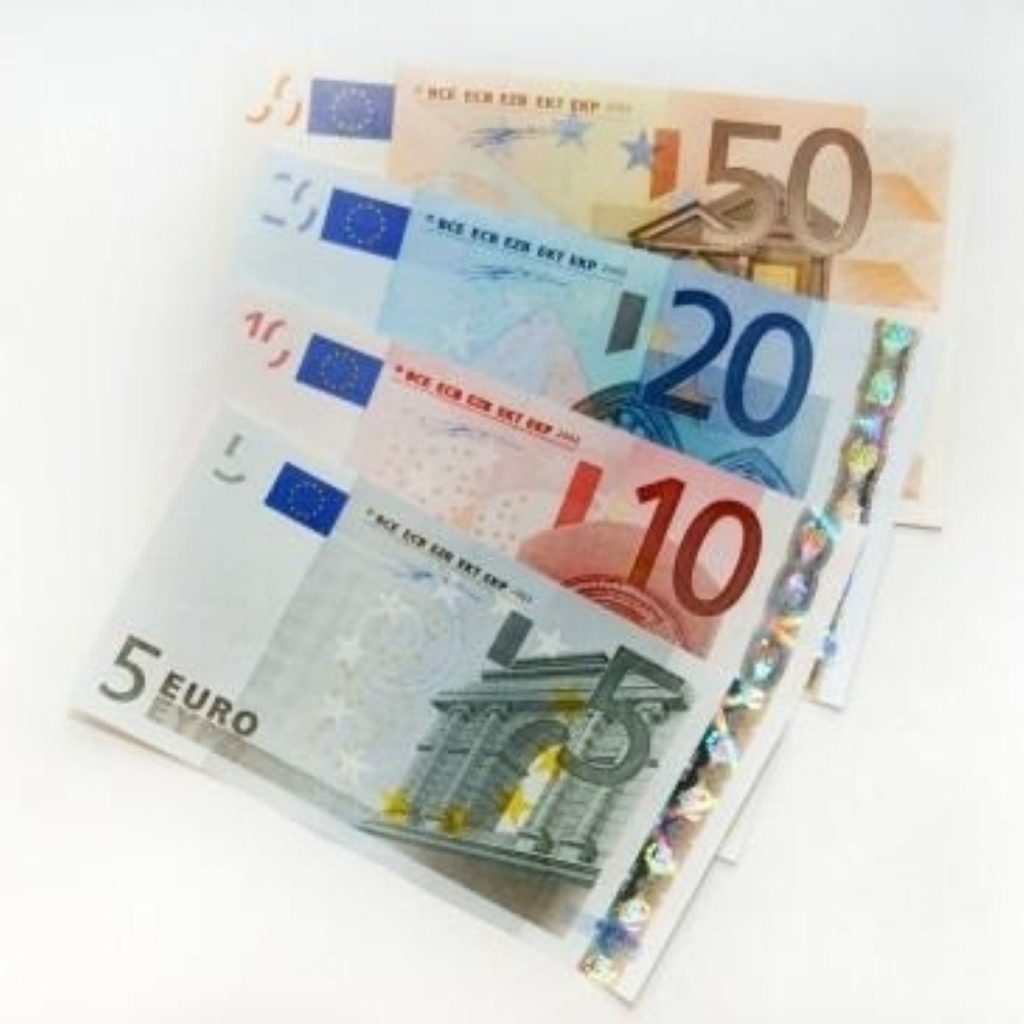Brown vigilant on UK’s euro entry
Little chance of joining the single currency under existing conditions.
That was the message from Chancellor of the Exchequer Gordon Brown last night in his Mansion House speech in the City of London.
In the audience was the Lord Mayor and guests.
Mr Brown, speaking after the Treasury said no to euro embrace last week, delivered a speech almost identical in substance to the one given two years ago.


In both speeches, the five economic tests remained sacrosanct. Britain will refrain from using the fledgling currency until European countries adopt flexible economic practices similar to those in Britain.
Mr Brown said: ‘To join in the wrong way or on the wrong basis without rigorously ensuring the tests are met would not be in the national economic interest.
‘And we will do nothing to put stability, growth, or the funding of public services at risk.’
Mr Brown said the Treasury’s vigilance and strict approach to the five economic tests would stand up to close historical scrutiny.
‘We reject those who rule out joining the euro forever as a matter of dogma even if it were shown to be in the best economic interests of the country.
‘If, on the basis of the five economic tests, membership of the euro is shown as good for sustaining British jobs, business and future prosperity then it is in the national economic interest and right to join.
‘But we similarly reject those who would urge us to join irrespective of the rigorous assessment of the five tests.
‘If we entered with the tests not met at the wrong exchange rate, then – just as with the ERM – we could see unemployment rise, public service investment fall and growth tall.
‘The five tests – on convergence, flexibility, financial services, investment and employment – are our guarantee of economic stability.
‘It is because stability is so fundamental to British economic success that I can assure you that there will be no short-cuts and no fudge.’
The Chancellor defended the record of the Bank of England’s Monetary Policy Committee and the work of governor Sir Edward George and suggested the MPC had done a better job managing macro-economic policy than the European Central Bank.
Sir Edward, for his part, speaking at the Mansion House, applauded the Government’s record on the UK economy and forecasted upbeat global growth.
‘There remain reasonable grounds for thinking that the external environment will now gradually improve as we move through the second half of this year into next, and that this will help to offset the gradual moderation we are beginning to see in the growth of consumer spending.
‘That would open the way to continued relatively steady and better balanced growth – at or above trend, with inflation remaining close to target.
‘But there are certainly short-term risks on either side, and given those risks – including the risk of slow growth in the eurozone, particularly in Germany – I agree with your (Gordon Brown’s) assessment that the economic case for euro entry has not yet been made, he said.
But the Government appears to be in a pickle over its overall message on the single currency.
Leader of the Commons Peter Hain and spokesman on Europe said the Treasury was charting ‘the road map’ for Britain’s embrace of the single currency.
‘Last week Gordon Brown put us on a road map to joining the euro and he gave the British people the clearest explanation so far of why it would be in our national economic interest.
‘As is made clear in the 18 studies, the Changeover Plan and the Economic Assessment itself – all of which I had the dubious pleasure of reading – the potential benefits are even larger than we expected,’ Mr Hain said.
Addressing business leaders in his speech, Mr Brown said: ‘At no point in our long history has Britain ever been prepared to relinquish our responsibility and interest in Europe’s future.’
‘But what is new today, I believe, is that we can show that an enlarged Europe is changing and will change in line with the values, stability, free trade, liberalisation that Britain and British people hold important.’
Mr Brown concluded that Britain could become a ‘leader in Europe as Europe equips itself, changing to meet the new challenges of globalisation.’

